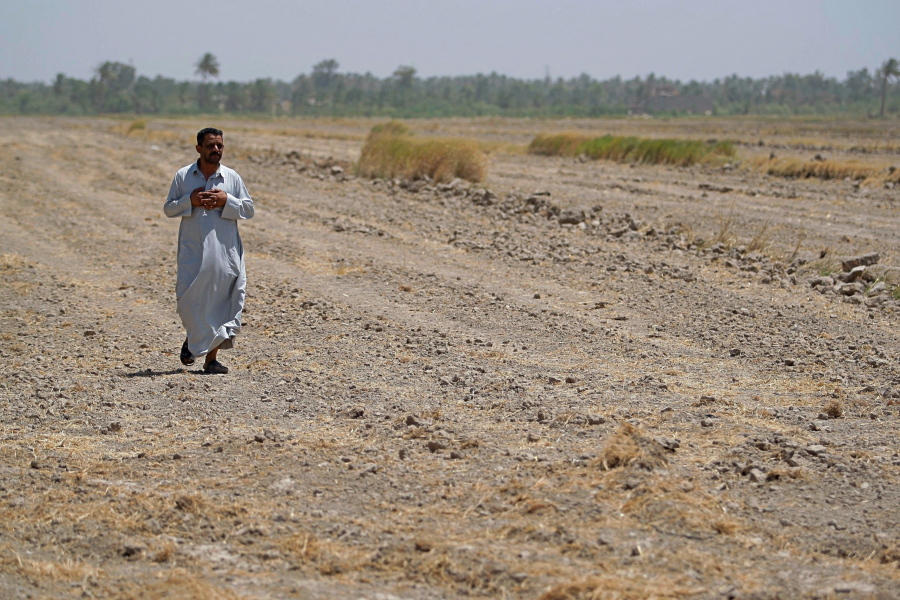MISHKHAB, Iraq — Iraq has banned its farmers from planting summer crops this year as the country grapples with a crippling water shortage that shows few signs of abating.
Citing high temperatures and insufficient rains, Dhafer Abdalla, an adviser to Iraq’s Ministry of Water Resources, told The Associated Press that the country has only enough water to irrigate half its farmland this summer.
But farmers fault the government for failing to modernize how it manages water and irrigation, and they blame neighboring Turkey for stopping up the Tigris and Euphrates rivers behind dams it wants to keep building.
The volume of water flowing in these two vital rivers — which together give Iraq its ancient name, Mesopotamia, the land between the rivers — fell by over 60 percent in two decades, according to a 2012 report by the U.N.’s Food and Agriculture Organization.
“What’s happened this year is a combination of low rainfall, low ground water, and the new dam that Turkey has built,” said Paul Schlunke, a senior emergency response coordinator for the FAO in Erbil. “It means there’s no water for the south (Iraq).”
The orders against sowing rice, corn, and other crops this summer came as a shock to the towns and villages in the once fertile plains south of Baghdad, where the local economy depends on farming. Nationwide, one in five Iraqis works in agriculture.
In Iraq’s rice belt, the farmland is cracked and dry.
“I feel as though my very existence has been shaken,” said farmer Akeel Kamil as he surveyed his barren fields near the town of Mishkhab.
His 100 dunams — about 25 acres — last year produced 150 tons of Anbar rice, a strain particular to Iraq that is prized for its gentle, floral aroma. This year, the pumps that would be flooding his fields with water are silent, and the irrigation canal that runs by his property is nearly empty.
Flood irrigation has been used in the area for millennia, though FAO has warned of massive water wastage. It and other organizations are calling on the Iraqi government to revamp its approach to agriculture and promote more efficient methods including drip and spray irrigation. Iraq’s Natural Resources Ministry protests it does not have the budget to do that.
Farmers staged demonstrations against the moratorium. In one instance, they forced the closure of a levee along a branch of the Euphrates River to let the water levels rise for irrigation.
They demand the government secure more water from Turkey, fill the country’s reservoirs, and drill into the nation’s aquifers.



